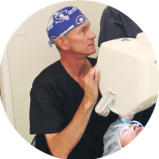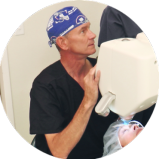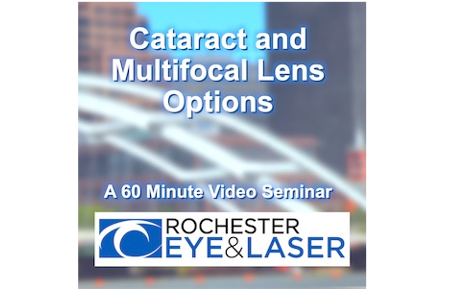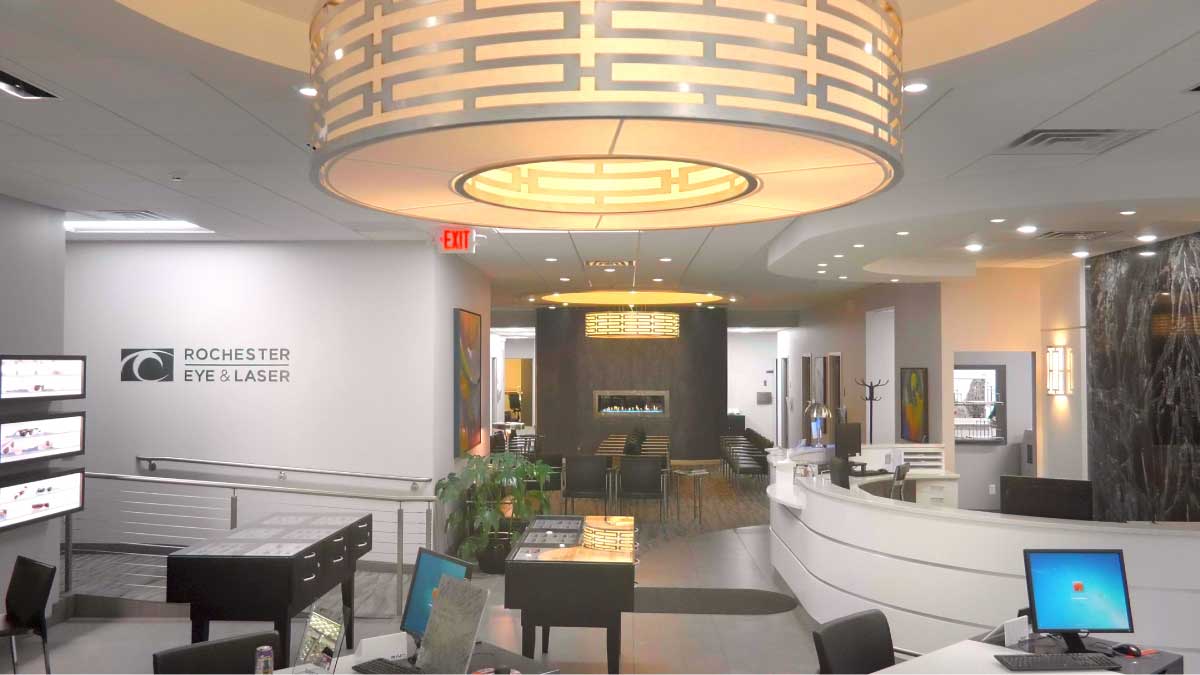Cataract Surgery Options in Rochester
In this video Kim Fullone, Former Director of Clinical Services, and Dr. Ken Lindahl explain Cataracts, Cataract Surgery, newer LASER cataract...
3 min read
 The Rochester Eye & Laser Team
:
Jun 23, 2022 3:38:43 PM
The Rochester Eye & Laser Team
:
Jun 23, 2022 3:38:43 PM

 A cataract occurs when the natural lens in the eye -- which is normally clear -- becomes cloudy. This can distort your vision and make it difficult to read, drive, recognize people, watch TV, and much more. It’s a lot like looking through frosted glass or a window that has fogged up.
A cataract occurs when the natural lens in the eye -- which is normally clear -- becomes cloudy. This can distort your vision and make it difficult to read, drive, recognize people, watch TV, and much more. It’s a lot like looking through frosted glass or a window that has fogged up.
The actual procedure generally only takes 15 minutes to complete, but your doctor will place you in a recovery area for around 30 minutes while the anesthesia wears off. You’ll be asked to wear a protective eye shield for a few hours after the surgery and while you nap or sleep.
Although most people report clear vision a few hours after surgery, don’t be alarmed if you notice blurry, distorted, or wavy vision. It’s also common to notice red or bloodshot eyes as the eye heals. If these symptoms don’t subside after a few days, report them to your eye doctor.
Expect to apply eye drops for the first few weeks after surgery. The entire recovery period generally takes anywhere from a few weeks to a full month. Since everyone heals differently, you should report your progress to your eye doctor and follow their recommendations closely.
Immediately after the procedure, your ophthalmologist will give you a list of things you can and can’t do. Following their instructions is extremely important to ensuring a quick and successful recovery. Take their advice seriously and don’t be scared to ask any questions along the way.
While everyone’s recovery period is different and your eye doctor will likely give you instructions specific to your eye, let’s go over some of the general do’s and don’ts following cataract surgery -- starting with the things you can do:
Now, let’s take a look at some of the things you shouldn’t do after your cataract surgery:
When sleeping, it’s important to wear your protective shield for at least the first week -- maybe longer. When washing your face, make sure you don’t splash or get any water directly in your eye. You should also consider eating a healthy, well-balanced diet following your surgery.
For example, add more fiber-rich foods to your daily diet, leafy green vegetables, and lean protein. Avoid foods that are high in sugar and refined carbohydrates to prevent rapid increases in blood sugar. A healthy diet gives your body the nutrients it needs during the recovery period.
Again, everyone’s recovery period is different, so listen to your eye doctor and follow their detailed instructions carefully. It won’t take long for your eyes to heal and you’ll have improved vision before you know it, so long as you’re careful throughout the recovery process.
Your eye health and vision are essential to living a quality life. That’s why we’re dedicated to ensuring everyone is given the proper care and prevention from serious eye conditions -- including cataracts. At the Rochester Eye and Laser Center, your eye health and vision are our top priority.
If you believe you have a cataract, want to learn more about the cataract surgery procedure, or simply want to schedule a routine eye exam to ensure your eye health is in good condition, we’re ready to help. With Dr. Kenneth Lindahl by your side, your eyes are in good hands.
Feel free to contact us today to learn more about our services or to schedule a visit with Dr. Kenneth Lindahl. We think you’ll be genuinely impressed by our boutique-style office. We’re not only dedicated to best-in-class service, but we want you to feel comfortable when visiting our office.
We can’t wait to meet you and serve you with the best eye care you’ve ever seen!

In this video Kim Fullone, Former Director of Clinical Services, and Dr. Ken Lindahl explain Cataracts, Cataract Surgery, newer LASER cataract...

Yourcataract surgeryexperience will change the way you see the world – literally. It may take anywhere from a few hours to a week or two for...

Cataracts, a common eye condition that affects almost everyone as they age, often go unnoticed until our 60s or 70s. We may start experiencing more...